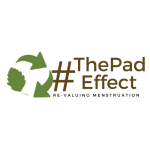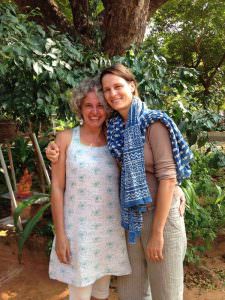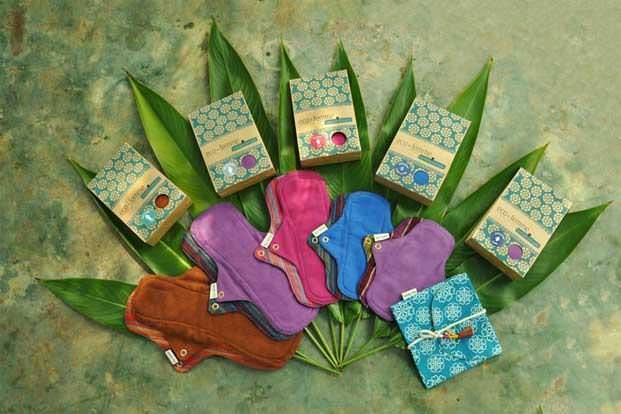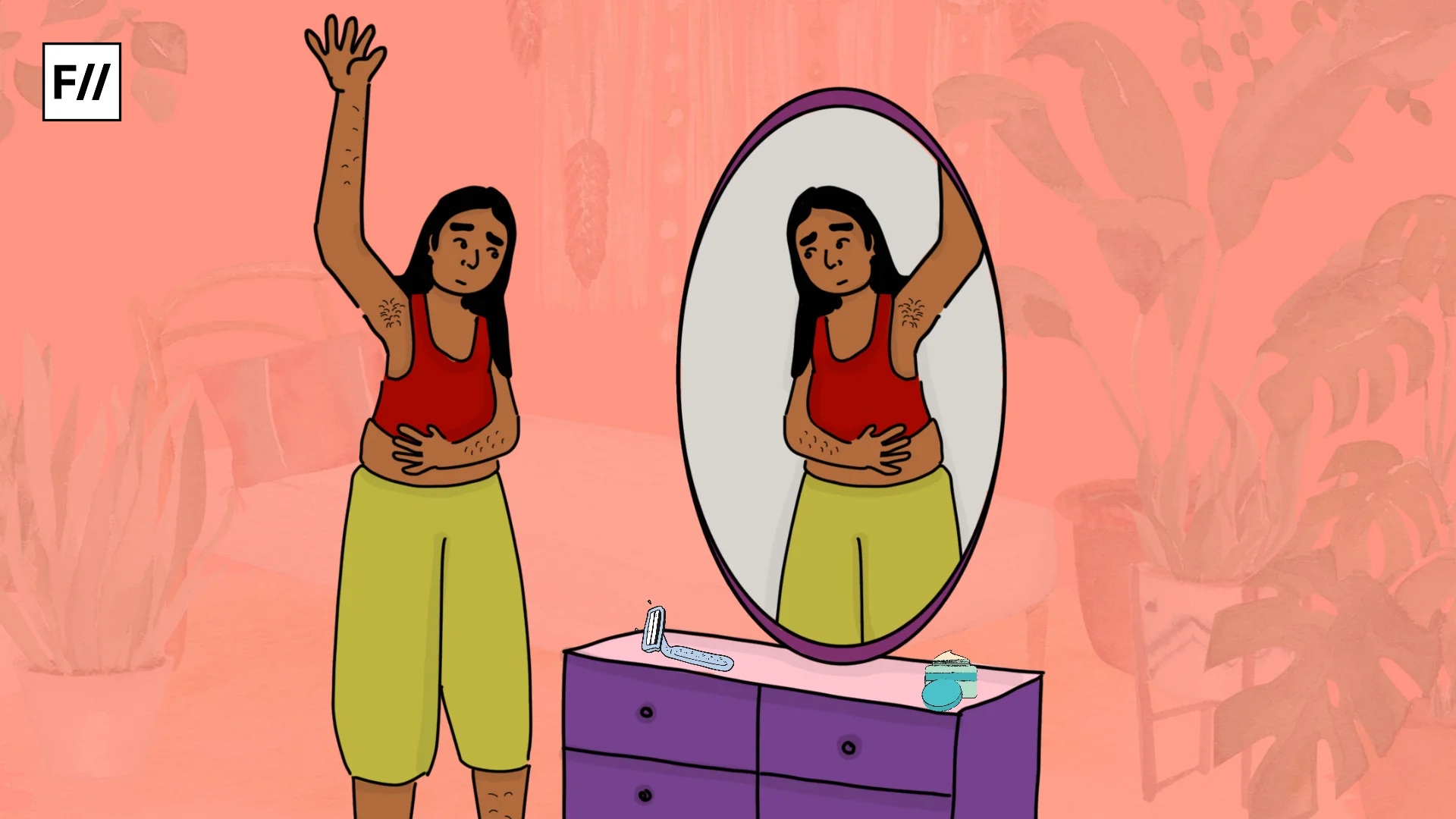 Editor’s note: Approx 125kg of sanitary waste is generated per person during their menstruating years and these sanitary napkins can take 500-800 years to break down! #ThePadEffect is a campaign to advocate for sustainable menstruation and prevent thousands of tons of sanitary waste.
Editor’s note: Approx 125kg of sanitary waste is generated per person during their menstruating years and these sanitary napkins can take 500-800 years to break down! #ThePadEffect is a campaign to advocate for sustainable menstruation and prevent thousands of tons of sanitary waste.Posted by Kathy Walkling
The onset of menstruation was a nightmare for me! I vaguely knew it would come sooner or later; yet nothing prepared me for the visceral disgust of menstrual blood leaking out of my body for the first time. I didn’t tell anyone that whole first month, concealing it with toilet paper, magically hoping that it wouldn’t return!
For the second month, I knew I had to face the inevitable and tell my mother. She dealt with the news pragmatically. She whisked me into her bedroom, closed the door, and from a dark corner at the bottom of her cupboard, produced a packet of sanitary napkins explaining to me how they were to be used. She took particular care to explain the disposal part, handing me pre-cut pieces of newspaper which were for wrapping the used pad before placing it into the little bin next to the toilet.
Voila! I don’t recall anything else she said to me but I do remember disliking the pads which looked like little pillows and feeling self conscious because of their particular fragrance which I was afraid would give me away. I was especially paranoid that my father and brother would find out – I felt instinctively ashamed. In hindsight what surprises me most as I reflect on my menarche is that even as a young woman, I was VERY AWARE that the game plan here was secrecy and concealment and I obediently complied.
I never questioned, let alone knew that there might be any alternative to disposable menstrual products.
Gradually, as my body settled into menstrual cycling, I learned to live with my monthly visitor. At a certain moment, I switched to tampons but I never questioned, let alone knew that there might be any alternative to disposable menstrual products. I simply got on with the business of managing my menstruation invisibly and making sure it didn’t impact or disturb others. And so it went on for 15 years.
In 1997, I moved to India from my home country, Australia, to begin a new life in Auroville. One of the first new challenges that I found myself having to contend with was how to dispose of my sanitary waste. Where I had come from, there is at least the appearance that these products go “away” when tossed into that conveniently placed “sanitary bin” that was next to every toilet. Arriving in India, with its highly visible mountains of garbage, I was forced to recognise that my sanitary waste was not going “away” after all!
I began to feel like a fugitive lurking around in the bushes, looking for a place where I could discreetly dig a hole to bury my used pads and tampons. Throwing them in a bin for others to handle or burning these wet products with their plastic liners was unimaginable. I began to wonder if another way was possible.
In 1999, while visiting some family in New Zealand, I came across my first washable cloth pad in a small village shop. It was made of colourful soft flannel cotton, unbranded and obviously home made by a local woman. I instinctively knew this was what I had been looking for and for the first time ever, felt excited about getting my next period! From the day of first use, I was converted! One by one all the benefits became apparent.
Firstly, it was surprisingly comfortable to wear and it did the job at absorbing my flow. Then came the washing part. I would be lying if I said I was perfectly at ease with the idea of washing – which required handling – my blood soaked cloth pad but in fact the reality was better than imagined. After dropping the pad in a bucket of cold water to soak, most of the blood came out so washing took almost no time at all. It made me question my aversion to my menstrual blood, for the first time.
I had plenty of exposure to the “blood of death” throughout years of working in a hospital – why then should I feel so disgusted by the “blood of life” that my menstruating body was eliminating each month? This inquiry made me realise I had been absorbing unconscious messages since childhood making me believe that menstruation is dirty, disgusting and something to be denied.
Overcoming this washing resistance felt strangely emancipatory! Finally, I was thrilled to have found a way out of the disposal conundrum and, as an added bonus figured out that I was also bound to save money. That a single product could tick so many boxes with both intended and unintended positive benefits made me something of a cloth pad fanatic. It prompted me to start making cloth pads for the Auroville community and I gradually realised that there was an interest in these products.
For the first time ever, I felt excited about getting my next period!
In 2010, I met Jessamijn Miedema and as we both loved cloth pads, we decided to focus our efforts to build a social enterprise. We were both very concerned by the growing mountain of sanitary waste which we knew was increasing rapidly due to increased adoption to disposable sanitary napkins and a lack of proper solid waste management systems in India. As we researched the ingredients of sanitary napkins we were alarmed to learn that:
- A single woman generates approx 125 kgs of Sanitary Waste throughout her menstruating years.
- There are 355 million women of the reproductive age in India.
- Almost 90% of branded sanitary napkins is plastic.
- It is estimated to take 500-800 years for a single sanitary napkin to break down.

Jessamijn and Kathy – the co-founders of Eco Femme.
At Eco Femme – the social enterprise we co-founded together in Auroville – we dream of a cloth pad revolution! Over the last 7 years it has been exciting to witness a growing openness to reflect on our cultural conditioning around menstruation and talk about it more publicly.
We see a growing network of passionate grassroots activists who are taking sanitary waste on as a serious environmental, social justice and public health issue. While the change is slow, there is clearly a growing public awareness about the health and environmental problems of disposable napkins with cloth pads increasingly being taken seriously as a viable menstrual product option.
Cloth pads are truly a subversive little product that have really helped transform my relationship with my body.
Today being on the cusp of menopause, and I have gone from being disgusted to being good friends with menstruation. I love using cloth pads which have turned out to being a key to reconnecting me with my body in a healthy and natural way. Cloth pads are truly a subversive little product that have really helped transform my relationship with my body and establish a restorative relationship with the earth.
I am thrilled to share this story in the hope that it inspires others to make the switch, thereby, doing your bodies and the earth a big favour!
Kathy Walkling is the Co-founder of Eco Femme.
About the author(s)
Guest Writers are writers who occasionally write on FII.




